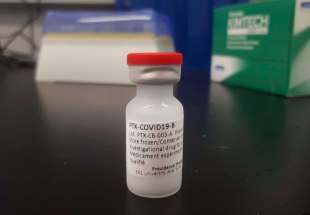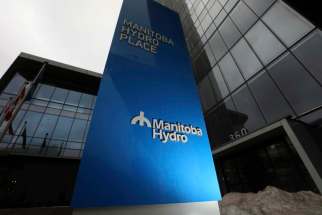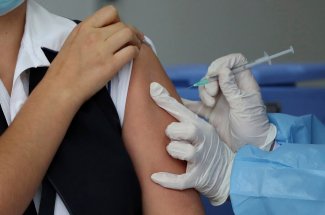Pallister’s deal with vaccine developer gives Manitobans false hope, expert says
Read this article for free:
or
Already have an account? Log in here »
To continue reading, please subscribe:
Monthly Digital Subscription
$0 for the first 4 weeks*
- Enjoy unlimited reading on winnipegfreepress.com
- Read the E-Edition, our digital replica newspaper
- Access News Break, our award-winning app
- Play interactive puzzles
*No charge for 4 weeks then price increases to the regular rate of $19.00 plus GST every four weeks. Offer available to new and qualified returning subscribers only. Cancel any time.
Monthly Digital Subscription
$4.75/week*
- Enjoy unlimited reading on winnipegfreepress.com
- Read the E-Edition, our digital replica newspaper
- Access News Break, our award-winning app
- Play interactive puzzles
*Billed as $19 plus GST every four weeks. Cancel any time.
To continue reading, please subscribe:
Add Free Press access to your Brandon Sun subscription for only an additional
$1 for the first 4 weeks*
*Your next subscription payment will increase by $1.00 and you will be charged $16.99 plus GST for four weeks. After four weeks, your payment will increase to $23.99 plus GST every four weeks.
Read unlimited articles for free today:
or
Already have an account? Log in here »
Hey there, time traveller!
This article was published 18/02/2021 (1756 days ago), so information in it may no longer be current.
Premier Brian Pallister’s vaccine procurement plan is being called a “fantasy,” just as doubt is cast on the Alberta company’s ability to develop the vaccine before it’s too late.
Providence Therapeutics of Calgary is too far behind its vaccine development to ever catch up with current approved vaccines, a University of Ottawa professor said Thursday.
“In no way do I think this is realistic, and the Manitoba government is holding out very speculative, almost certainly false, hope,” said Amir Attaran, a professor in the faculties of law and the School of Epidemiology and Public Health.
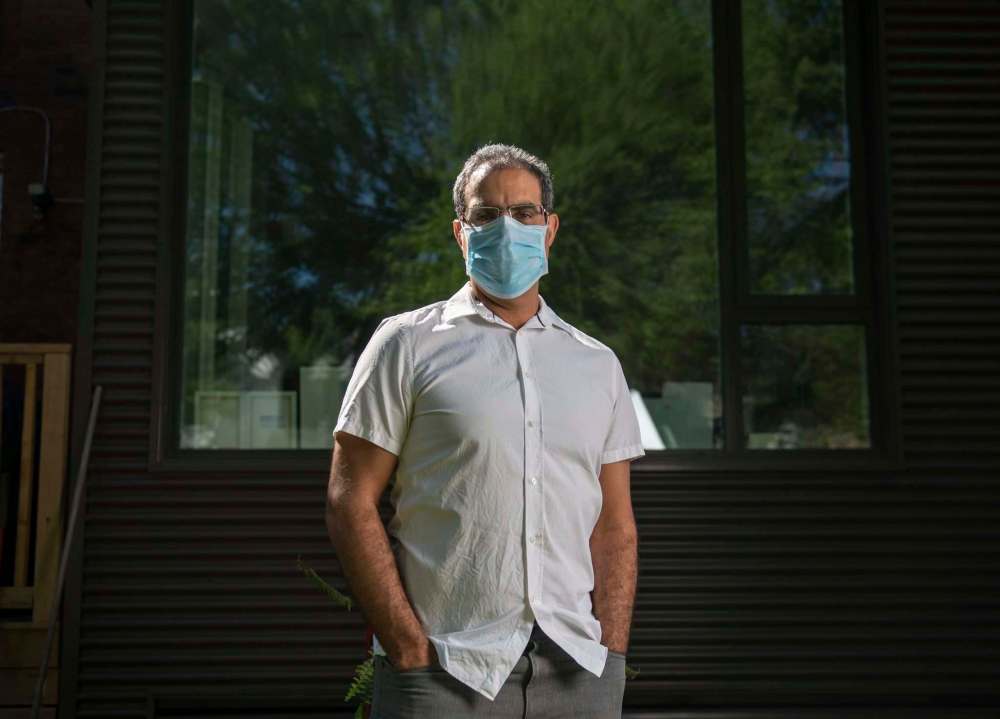
“I think the prospect of Manitoba receiving vaccine from Providence by Dec. 31, which I understand to be the agreement, is in the realm of fantasy.”
Meanwhile, the Alberta government confirmed Thursday it is working with other provinces to look for the most viable Canadian source of its own vaccine supply — and there are a number of options, not just Providence, which Manitoba plans to bet $7.2 million on.
On Wednesday, Pallister promoted Manitoba’s deal with Providence to purchase two million doses of the vaccine for $18 a shot if and when it is ready, with a 20 per cent, $7.2-million non-refundable deposit up front. Pallister said he and other premiers who are “uncomfortable” with delays in federally procured Pfizer BioNTech and Moderna vaccine shipments are looking for their own made-in-Canada supply.
The premier defended Manitoba’s deal with Providence, saying the vaccine may not be ready until 2022, but it’s a risk worth taking to ensure a reliable supply. Manitobans will need COVID-19 booster shots down the road and Pallister wants to buy them from Providence because, he said, the vaccine can be manufactured in Winnipeg.
Attaran said Providence is not well-positioned to meet Manitoba’s expectations.
“The company only just began phase one trials, it has a very long road ahead, it will be extraordinarily difficult to recruit trial subjects if some are offered placebo, and all of this is aimed at challenging established mRNA vaccine incumbents — including one of the world’s biggest pharma companies,” Attaran said Thursday.
A day after the premier promoted Manitoba’s plan to buy its own vaccine from Providence Therapeutics, the federal government announced vaccine deliveries of Pfizer BioNTech and Moderna — the only two COVID-19 vaccines approved in Canada — were back on track.
“We’re now coming out of this period of limited supplies,” Maj.-Gen. Dany Fortin, the military commander leading Canada’s vaccine logistics said Thursday. By the end of March, Canada will receive four million doses from Pfizer and two million from Moderna. The Public Health Agency of Canada said it expects enough doses to fully vaccinate the country’s entire population by September.
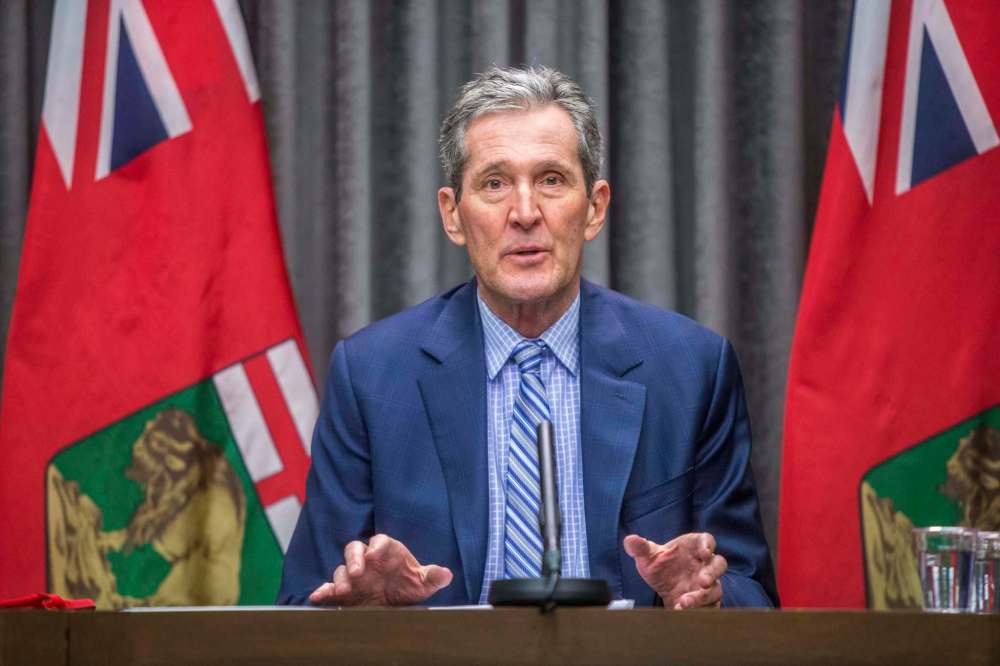
“It’s an abundance of supplies for spring and summer, where we can have a significant scaling-up of immunization plans in provinces,” Fortin said. This week, 403,650 doses of the Pfizer vaccine arrived in Canada — the largest single delivery since shipments began in December.
This “abundance” changes nothing about the need for a national, domestic supply of COVID-19 vaccines, a spokeswoman for Pallister said Thursday.
“Manitoba’s investment in this initiative is about building a long-term, made-in-Canada solution to provide vaccine security and insurance to Manitobans and all Canadians,” Olivia Billson said in an email. “Federal offshore procurement of vaccines was required because of no national vaccine production to draw upon.”
The recent disruptions in delivery reinforce the need for Canada to have a strong, domestic vaccine production capacity, “a goal that every government in Canada shares,” she said.
“It happened once, it can happen again. The federal government cannot guarantee it won’t happen again,” she said. “Manitoba took this initiative to protect Manitobans and help support the development of a made-in-Canada vaccine capacity we sorely need.” The province has not yet paid the $7.2 million non-refundable deposit to Providence, she said.
The premier said Wednesday that Ontario and Alberta are also in talks with Providence.
When asked Thursday if Alberta Premier Jason Kenney was looking to procure COVID-19 vaccine from the same Calgary developer as Manitoba, his spokeswoman referred to comments he made on Wednesday.
Kenney told reporters that when Alberta effectively ran out of vaccine supplies three weeks ago, it became clear it couldn’t rely on federal procurement.
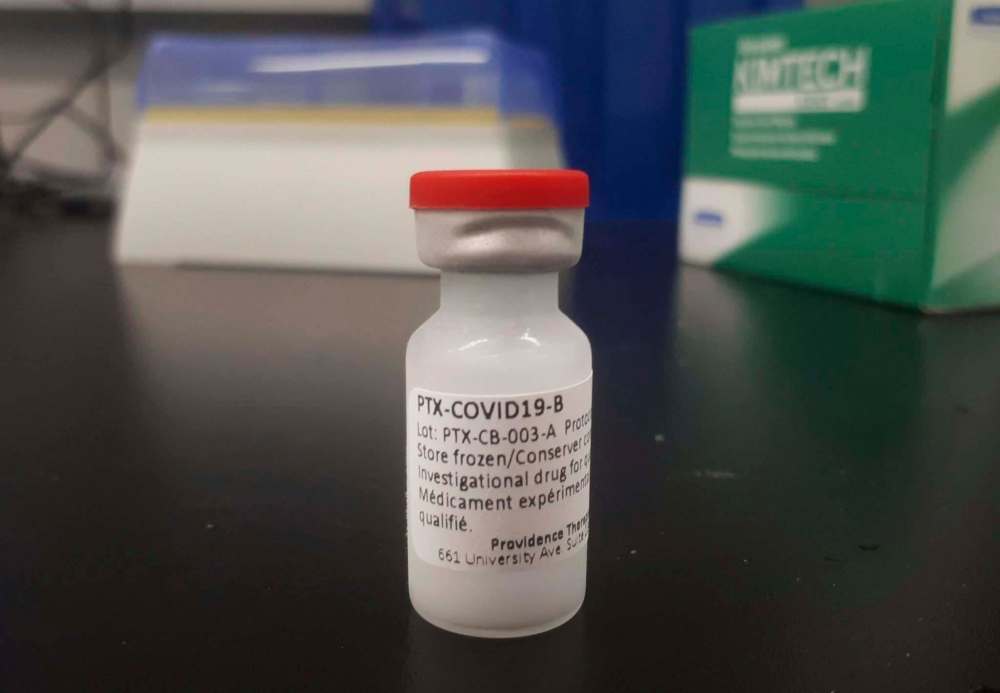
“That is why we have begun working with other provinces on examining all possible sources of domestic production,” Kenney said. That includes Calgary’s Providence Therapeutics, as well as other developers in Alberta, Saskatchewan and other provinces, he said.
“I’m working with premiers across the country to share notes,” Kenney said. “We’re comparing notes on which look the most viable — whether we can do something provincially as a Plan B.”
The spokeswoman for Ontario Premier Doug Ford did not respond to a request for comment.
carol.sanders@freepress.mb.ca

Carol Sanders
Legislature reporter
Carol Sanders is a reporter at the Free Press legislature bureau. The former general assignment reporter and copy editor joined the paper in 1997. Read more about Carol.
Every piece of reporting Carol produces is reviewed by an editing team before it is posted online or published in print — part of the Free Press‘s tradition, since 1872, of producing reliable independent journalism. Read more about Free Press’s history and mandate, and learn how our newsroom operates.
Our newsroom depends on a growing audience of readers to power our journalism. If you are not a paid reader, please consider becoming a subscriber.
Our newsroom depends on its audience of readers to power our journalism. Thank you for your support.
History
Updated on Thursday, February 18, 2021 9:35 PM CST: Fixes typo.
Updated on Friday, February 19, 2021 9:16 AM CST: Corrects typo
Updated on Friday, February 19, 2021 2:00 PM CST: Corrects number of doses province agreed to purchase: two million


